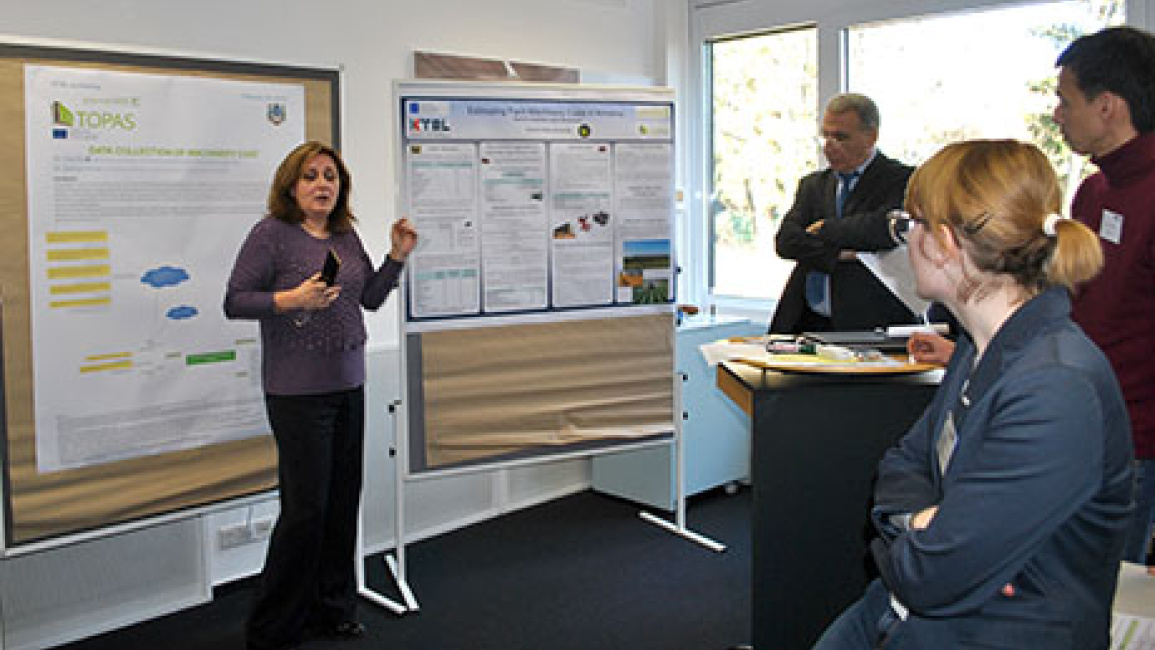- Main
- Node
- YSU'S COOPERATION WITH EUROPEAN UNIVERSITIES UNDER THE “ERASMUS +” PROGRAM CONTINUES
March 20, 2019 | 15:24
Education
YSU'S COOPERATION WITH EUROPEAN UNIVERSITIES UNDER THE “ERASMUS +” PROGRAM CONTINUES
Together with their colleagues from the Armenian National Agrarian University, as well as from Ukraine and Uzbekistan, two lecturers of the Faculty of Economics and Management of YSU participated in an intensive training course organized within the framework of the European Erasmus + TOPAS program at the Weihenstephan-Triesdorf University of Applied Sciences in Germany on February 13 to 26. The TOPAS program covers 10 universities from Germany, Romania, UK, Poland, Armenia, Ukraine and Uzbekistan, and is aimed at developing cooperation between these universities for the introduction of modern and innovative teaching methods.

The training was devoted to agricultural machinery and the latest methods and tools for collecting, managing and exploitation of farm data. These methods make it possible to orient the educational processes of relevant higher education specializations on the development of practical skills in the field of agrarian economics.
At the Darmstadt Research Center for Agricultural Machinery and Structures (KTBL), course participants familiarized themselves with the MaCost database on agricultural machinery created by the KTBL, and presented materials prepared by them for this stage of the training. In KTBL, YSU lecturers presented the experimental data on agricultural machinery of farms collected by them, as well as introduced methods for calculating fixed and variable costs for agricultural machinery.
Professor of the Weinshefan Trisdorf University of Applied Sciences (HSWT) Ralf Schlauderer presented the MAX software package created by the HSWT for calculating the gross margin and productivity of agricultural farms. Using the MAX package, participants made practical calculations based on the data collected from the farm they visited in Germany.
“The software package "MAX" allows obtaining economic estimates of farming activities, by collecting and processing detailed farm level information. The package also makes possible to calculate various scenarios of farming and compare their economic effectiveness. Using the "MAX" in the educational process will give students the opportunity to practice their theoretical knowledge, to carry out economic calculations and develop their practical analytical skills based on the collection and analysis of actual farm data. The direction of agricultural activity in Armenia, however, differs from Germany, where the package was developed. Therefore, we attach great importance to the continuation of the current cooperation in the field of education process and scientific research, as well as in the possible adaptation of the package also to the Armenian realities” - said Nairuhi Jrbashyan, associate professor at the chair of “Mathematical modeling in economy” of YSU.
“The method of farm data collection and calculations using the “MAX” package can serve as an example of the use of high technologies in the field of economic education. We intend to use this method in undergraduate and graduate curricula, as well as to continue cooperation with partner countries in developing solutions related to farm database structure and technological solutions, as well as in creating and processing of the database. Creating a farm database based on “MAX” will allow the collected data to be used both in the educational process and for research purposes, ” - said Aram Karapetyan, associate professor at the chair of “Mathematical modeling in economy” of YSU.
Following the results of the training, the main directions of deepening practical education methods at partner universities were identified and proposals were developed for further deepening cooperation under the TOPAS program.
“In order to further expand cooperation within the TOPAS program, we are currently working on developing a database creation strategy based on the collection of real data and the use of modern information and communication technologies. The database of agricultural assets, machinery, agricultural activities and production will allow to carry out mathematical calculations, as well as factor, correlation and cluster analysis of the data. We believe that these developments will be valuable both for us and for the partner universities” - said Professor Aram Arakelyan, Head of the chair of “Mathematical modeling in economics” of YSU.

